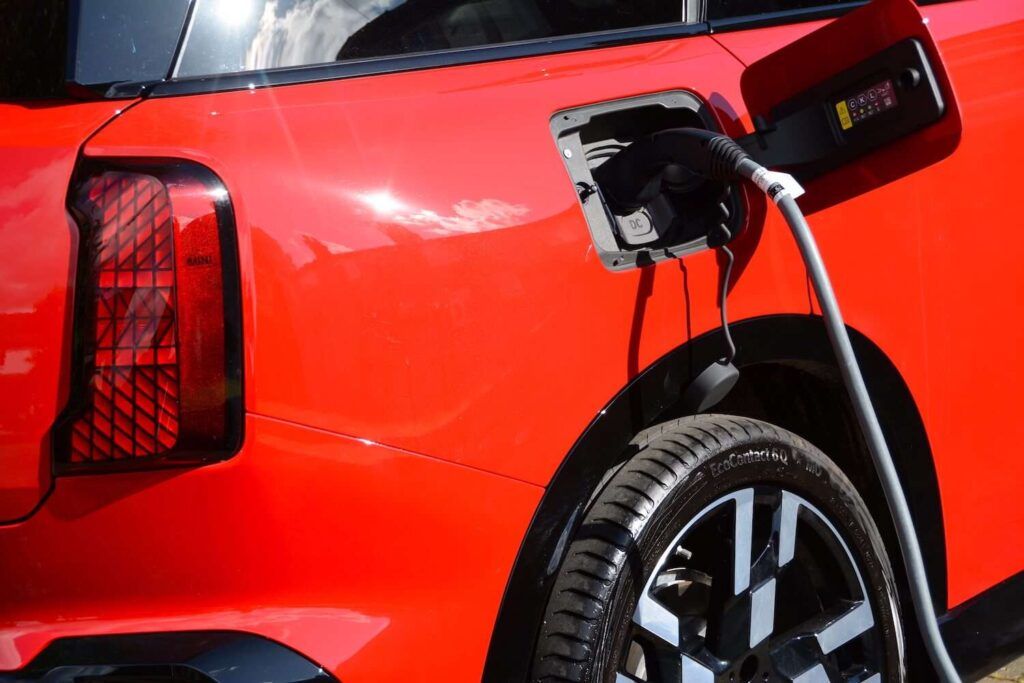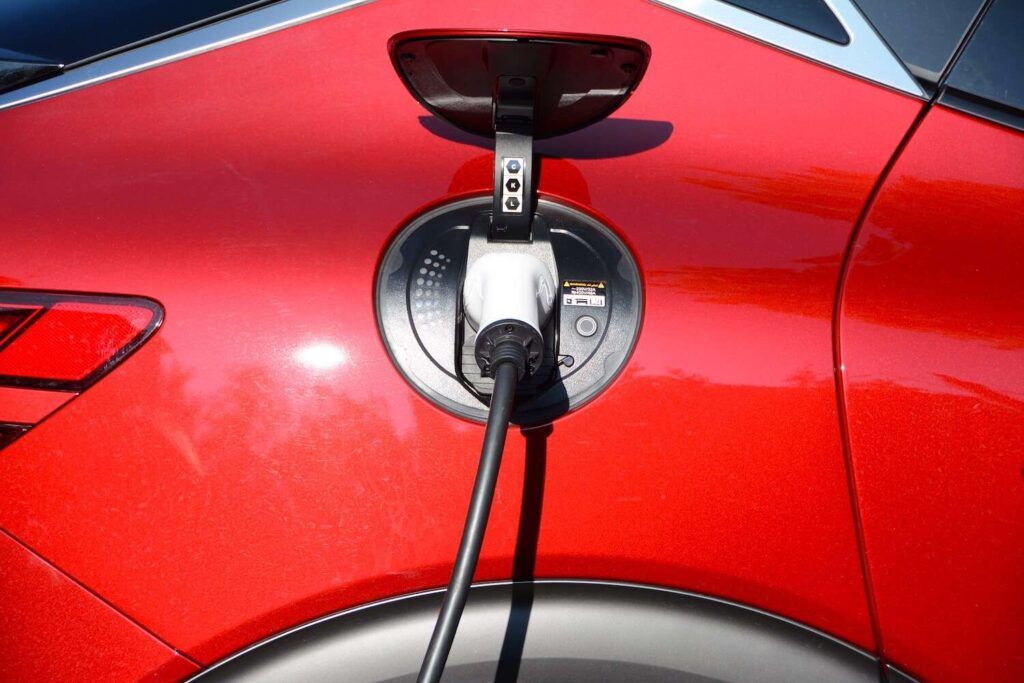The transport and energy sectors have given their reaction to the Government’s Powering Up Britain – Energy Security Plan, which outlines a number of initiatives to deliver green energy as well as ensure energy security and independence.
Alongside electric vehicle infrastructure investment plans, the government highlighted investment in offshore wind technology through a £160m fund, green hydrogen production through the £240m Net Zero Hydrogen Fund, and the first carbon capture projects as part of the £20 billion investment previously announced.
The policy document also highlighted the continuing Contracts for Difference scheme as well as a new focus on nuclear through the Great British Nuclear body, which would launch a new competition to select the best Small Modular Reactor technologies for development by autumn 2023.
Other announcements included on energy efficiency in domestic settings, including insulation schemes and heat pumps, as well as providing UK Export Finance with an extra £10 billion capacity to boost exports, including from the UK’s world leading clean growth sectors.
Yesterday (30th March) also saw the Government reaffirm its commitment to stick to the 2030 phase out of internal combustion engines and that it will be progressing with its proposed Zero Emission Vehicle (ZEV) mandate from 2024.
Andrew Wescott, Director of Sustainability & Regulation at Addison Lee, said: “The launch of the ZEV mandate is an important signal to the entire EV market in the UK. We know that more charging infrastructure is required and, if properly implemented, the ZEV mandate will give charge point operators the confidence to invest in the charging network, and fleet operators the ability to more readily shift to fully electric vehicles.
”The current lack of charging infrastructure and high energy prices are challenging the adoption of EVs by fleets and professional drivers. While today marks an important step by Government, it’s critical that charge point operators continue to work with private companies, such as ourselves, and the public sector to rapidly accelerate the rollout of affordable EV charging across the network.”
Melanie Shufflebotham, COO of Zap-Map, said: “The switch to cleaner and greener transport is crucial to tackling the climate emergency, so we welcome the additional investment in infrastructure for electric vehicles.
“There’s been huge growth in the number of EV charging points across the country but we need to ensure no-one is left behind, so it was also good to see extra funding for on-street residential chargepoints which will help those without off-street parking and garages.
“However, there was still no mention of removing the ‘pavement tax’ which sees EV drivers having to pay higher rates of VAT for public charging than those charging at home.
“At a more macro level it is good news that the Government appears to be reaffirming commitment to the ZEV mandate and has not given in to pressure from lobbyists. It has announced a final consultation on its plans but there’s no time to waste if it’s truly serious about decarbonising transport.”
Kate Jennings, Director of Policy at Logistics UK, comments: “The UK has the opportunity to be a leader in green innovation and investment, and this plan is a step in the right direction for parts of the UK’s logistics network. However, it remains vital that the government provides a delivery roadmap for commercial electric vehicle infrastructure, low carbon fuels (LCFs) and rail electrification, so businesses can invest in confidence.
“For operators electrifying their fleet, the capital expenditure required for depot charging can be extortionately high, with some operators who are currently in the process of electrifying their van fleets reporting costs of over £1 million – which is often not commercially viable, especially if premises are leased. The UK therefore needs a roadmap for electric logistics vehicles that includes a fair approach to funding electricity connections for depot charging. Public charge points must ensure sufficient space for logistics vehicles and fast charging points to enable operators to maximise the efficiency of fleets.”
Matt Adams, Transport Policy Manager at the REA (Association for Renewable Energy and Clean Technology) said: “It is pleasing to see the Government reaffirm its commitment to the much-needed ZEV sales targets for ZEV cars in the UK as well as the extra ambition laid out today for zero emissions vans as the next logical step in the UK’s journey to decarbonising road transport. The REA has repeatedly engaged with Government since the publication of their previous ZEV Mandate consultation to ensure it is ambitious, and we are delighted to see its ambition remains through the strong sales targets for cars and vans set out today.
“Although concerns remain that the borrowing mechanisms detailed in the ZEV Mandate consultation could see a short fall on the Government’s targets in the next three years, we are keen to understand more and are pleased with the ambition and strong sales targets that enable new cars and vans to be fully zero emissions by 2035.”
“Government has overall reaffirmed its commitment to Electric Vehicles and EV charging, which is welcome, and the REA is now continuing to urge the Government to implement further supportive policies, to make the energy transition a reality.”
Tim Slatter, Ford Britain chair, said: “Ford is on an accelerated path to an all-electric vehicle portfolio and carbon neutrality by 2035, and fully supports the government’s ambition for a zero-emission future. The ZEV mandate is a crucial piece of the electrification puzzle that provides a vital indicator of charging infrastructure needs in the coming years. We know from our customers that the biggest barrier to uptake of electric vehicles remains the availability and ease of charging. The ZEV mandate gives a clear direction and should provide the confidence for infrastructure investors to commit and enable the future for electric vehicles on UK roads. With new, higher targets for van customers, it is crucial that the government’s Plug-in Van Grant is retained in early years to support businesses making the switch.”
A spokesperson for the Advanced Propulsion Centre said: ”The commitment to electric vehicle infrastructure announced today reinforces confidence in the UK’s capability and is key to maintaining the UK’s position as a global leader in the transition to net-zero carbon emission vehicles say the Advanced Propulsion Centre (APC).
”This investment of more than £350 million in electric vehicle charging infrastructure sends a positive signal and will be a great support to the market transition in the UK. In 2022, the UK had the second highest battery electric car sales in Europe, bringing the total number of plug-in vehicles on UK roads to over one million licensed, of which around 60% are battery electric. Charging infrastructure is crucial to ensure an efficient transition to net-zero carbon emissions.
”The Powering up Britain – Energy Security Plan recognises the importance of creating the right conditions and supporting investment as the industry transitions to new energy vehicles. The APC will continue to support UK businesses and investors with the goal of anchoring the new supply chain at scale and pace.”
Neil Golding, the Energy Industries Council’s Head of Market Intelligence, remarked: “Our impression is that this underwhelming in terms of scale and clarity and does not appear to add anything new. The lack of clarity is causing uncertainty for supply chain businesses across the energy industries. There appears to be very little new in the announcements made today, more a rebadging of previous announcements. The supply chain is continually waiting for the new pipelines of projects to develop, but while we have headlines, we always seem to fall short on setting timescales and clear objectives. This means that we are failing to seed and root our supply chain in the UK.”
“We urge the government to provide more detailed guidance on when carbon capture and other projects will be implemented which will provide greater certainty for the supply chain and encourage investment in the industry.”
Chris Pateman-Jones, CEO of Connected Kerb, said: “It is clear the impact that local authorities have on delivering charging infrastructure at scale. The launch of the LEVI Capital Fund will kick-start even more partnerships between charging networks, like Connected Kerb, and local authorities around the country, enabling investments to go even further.
”Accessibility, reliability, and convenience are three crucial elements to a successful nationwide charging network, particularly for those unable to charge at home. The LEVI Fund will allow local authorities all over the country to deliver on ambitious net zero targets and accelerate us towards every UK resident living within a few minutes walk from a charging point. At Connected Kerb, we are continuing to deliver infrastructure at scale, and we hope the LEVI Capital Fund will give local authorities the confidence they need to deliver thousands of charge points, not hundreds.”
Image courtesy of Shutterstock.












